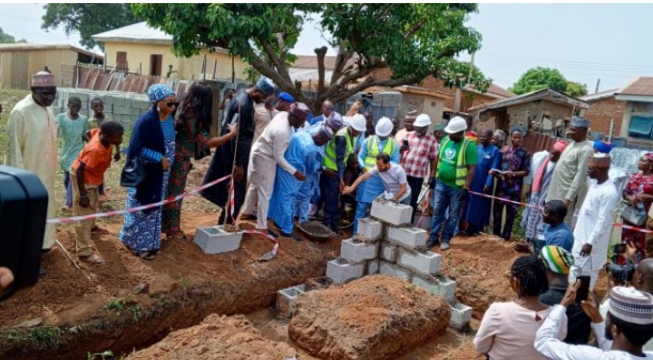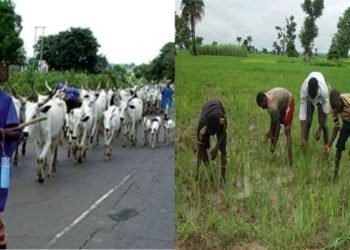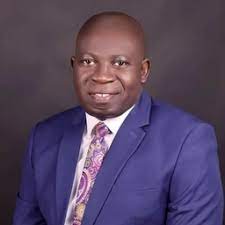The National Commission for Persons with Disabilities (NCPWD) has embarked on a significant initiative to improve the living conditions of individuals residing at the Alheri Leprosy Colony in Yangoji, Kwali Area Council of Abuja.
On Friday, the construction of a 40-unit accessible toilet commenced at the colony, aiming to provide improved sanitation facilities for the residents.
During the flag-off ceremony in Abuja, the Executive Secretary of the NCPWD, James David Lalu, expressed the commission’s commitment to enhancing the lives of persons with disabilities (PWDs) in Nigeria.
Established in 2020 to implement the provisions of the Discrimination against Persons with Disabilities Prohibition Act 2018, the NCPWD seeks to fulfill President Bola Ahmed Tinubu’s Renewed Hope Agenda.
Lalu stated, “Today, we are at Yangoji as part of our strong partnership with the FCTA, through the Mandate Secretary of the Social Development Secretariat.
We are going to construct 40 accessible toilets for the colony. We are also going to repair the deteriorated roofs to ensure the residents’ peaceful sleep during the rainy season.”
Furthermore, Lalu called upon the FCT Minister, Chief Nyesom Wike, to prioritize issues affecting PWDs, highlighting the need for dedicated projects that improve their quality of life.
Lalu appreciated the support of Dr. Betta Edu, the Minister of Humanitarian Affairs and Poverty Alleviation, in championing the cause of PWDs and ensuring their needs are addressed.
The NCPWD plans to complete the construction and renovation project within two months. During the commissioning, Dr. Betta Edu will ensure that the project meets high-quality standards and positively impacts the lives of PWDs nationwide. Lalu expressed appreciation for Edu’s unwavering dedication to improving the lives of PWDs since assuming office.
Lalu also emphasized the growing recognition of disability issues in Nigeria. He mentioned that President Bola Ahmed Tinubu recently signed the African Protocol on PWDs, and the NCPWD is preparing to showcase this commitment at the international level in Addis Ababa.
Lalu expressed optimism for a future where individuals without disabilities will not pretend to have disabilities to gain undeserved benefits, urging the PWDs community to remain vigilant against potential exploitation.
Representing the Minister of Humanitarian Affairs and Poverty Alleviation, Dr. Betta Edu, Rasheed Olanrewaju Zubair reaffirmed the ministry’s commitment to improving the situation of PWDs.
Zubair announced that 10% of the ministry’s empowerment programs would be reserved for PWDs, ensuring their inclusion in initiatives such as N-Power and GEEP.
Alhaji Abba Isa, the Senior Special Assistant to the President on Disability Matters, echoed the president’s determination to uplift the wellbeing of PWDs in Nigeria and create more opportunities for their growth and success.
Read Also: Police Warn Against Violence Ahead of Nasarawa Governorship Election Judgment
Engr. Isaac Ebeka, the contractor for the project, assured that all necessary resources were available, and the construction would be completed within two months.
He also highlighted that similar projects would be executed across the country, aiming to provide PWDs with a greater sense of belonging.
The Chief of Yangoji, Dantali Chidau Yakubu, expressed unity and acceptance between the leprosy colony and the larger community.
He acknowledged the colony’s exceptional agricultural abilities and thanked the government and organizations for their contributions while highlighting the need for further interventions.
Alhaji Ali Isa, the Chief of the leprosy colony, expressed gratitude on behalf of the residents for the ongoing construction of the toilets.
He eagerly anticipated additional interventions by the Federal Capital Territory Administration (FCTA) and the federal government, emphasizing the positive impact such initiatives would have on the lives of the colony’s residents.
The NCPWD’s efforts, in collaboration with the FCTA, reflect a major step toward improving the living standards of individuals with disabilities.
By providing accessible sanitation facilities and addressing the specific needs of the Alheri Leprosy Colony, the project showcases a commitment to inclusivity and ensures that those living with disabilities are given the support and resources necessary for a dignified life.























